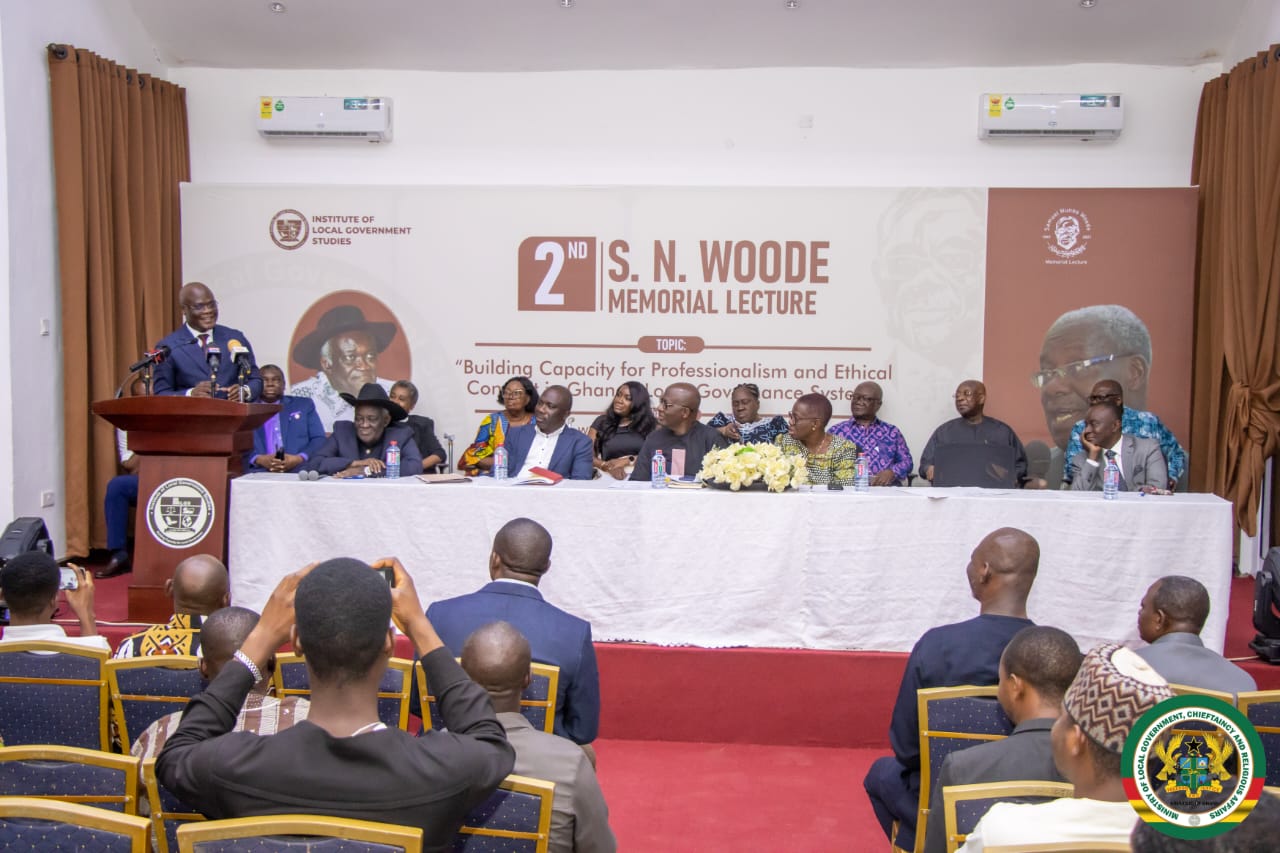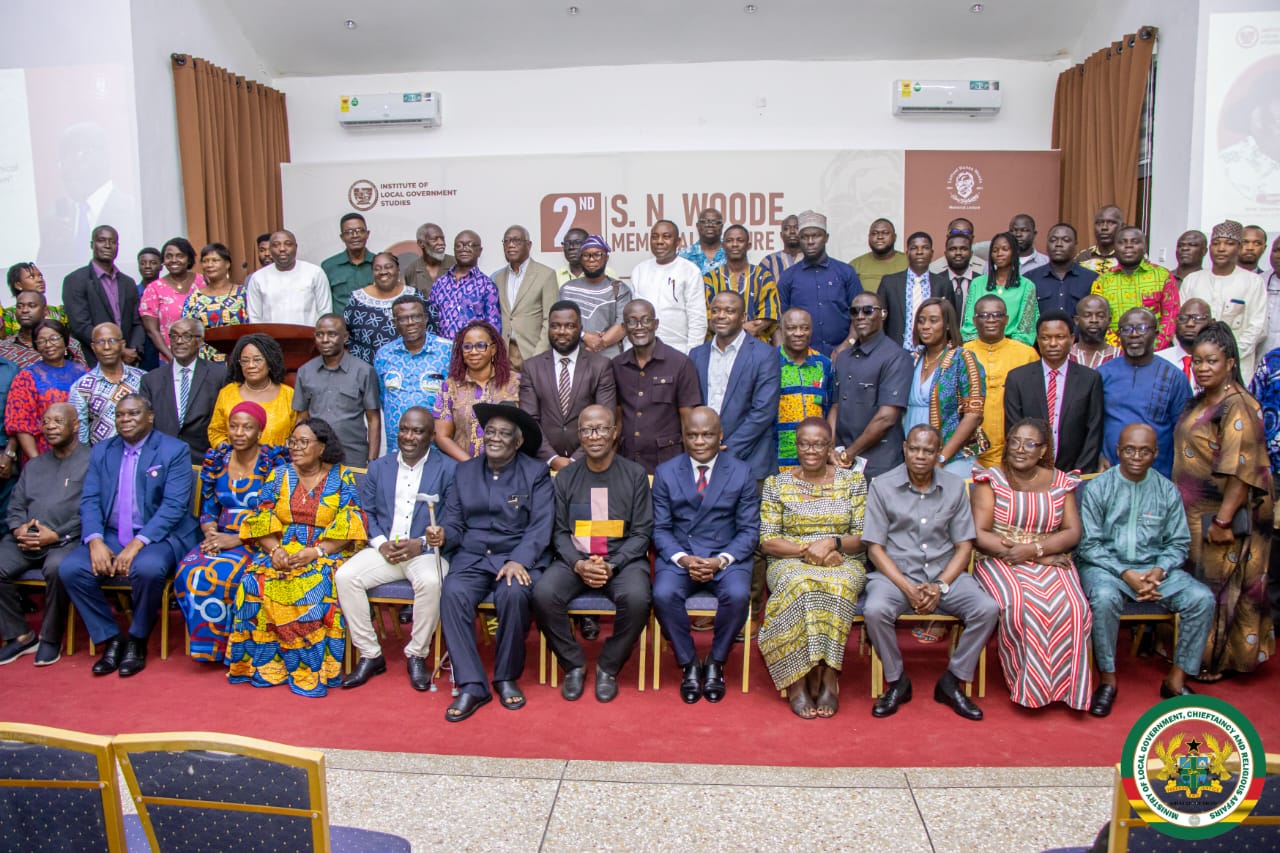The 2nd Prof. S. N. Woode Memorial Lecture held at the Institute of Local Government Studies (ILGS), Ogbojo, on Friday, 29th August 2025, became a strong platform for reflecting on ethics and professionalism in Ghana’s governance system.
Addressing the gathering, Hon. Ahmed Ibrahim (MP), Minister for Local Government, Chieftaincy and Religious Affairs, said the legacy of the late Professor Samuel Nunoo Woode offers timeless lessons on integrity, accountability, and service to humanity.
“Professor Woode was not only a scholar of Public Administration and Ethics but a man who lived by the very principles he taught. For him, ethics was not theory—it was a way of life. Any erosion of ethical values in public service weakens democracy and undermines development,” the Minister observed.
Hon. Ibrahim commended ILGS for its continuous role in building capacity for local governance but urged the Institute to deepen its training programmes on ethics and values. He emphasised that professionalism without ethics risks arrogance and abuse, while ethics without professionalism can lead to inefficiency.
The Minister also expressed concern that despite anti-corruption laws and parliamentary oversight, integrity challenges remain. “If we cannot comply with basic rules and ethics, the cost of running government becomes unmanageable. How do we inspire the next generation to embrace ethics when we fail to lead by example?” he asked.
He urged stakeholders to strengthen professional development for local government officials, uphold ethical standards that safeguard against corruption and abuse of office, and rebuild public trust by making ethics and professionalism the foundation of governance.
“Our journey towards better governance is a lengthy process, not a quick one,” Hon. Ibrahim concluded. “Let us honour the memory of Prof. Samuel Nunoo Woode not only with our words but with our actions.”
The memorial lecture, instituted in 2023, seeks to celebrate the life and contributions of Prof. Woode, a champion of ethics, professionalism, and decentralisation in Ghana’s public administration.
SOURCE: Darling Maame Efua Cann
(MLGCRA PR UNIT)
.jpeg)

.jpeg)
